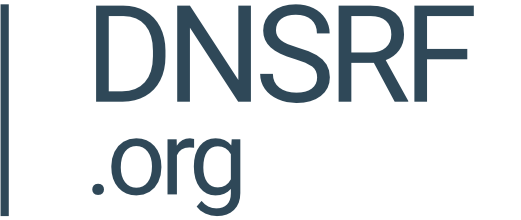NetMundial+10: Analysis of the Consultation Responses
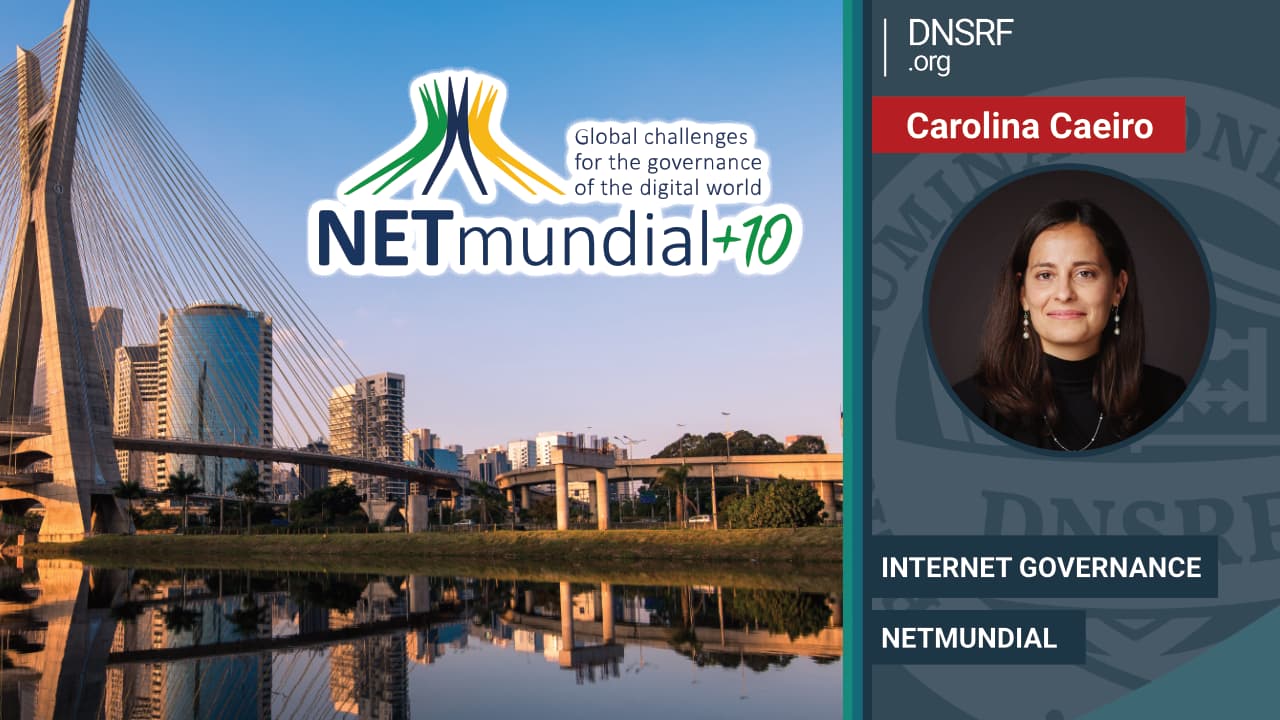
By Carolina Caeiro
NetMundial+10 is approaching fast. The event will take place from Monday April 29 to April 30.
Stakes are high. The decision to hold the event was preceded by extensive conversations –particularly at IGF Kyoto– about whether the event would deliver value in an already crammed 2024. Others worried that the success of the original NetMundial statement would be hard to replicate.
The event, however, has gone ahead and the carefully crafted agenda demonstrates that the organisers are up to the challenge.
The public consultations held in preparation focused on three areas of inquiry:
- Whether the 2014 principles of NetMundial still hold today
- How to up multistakeholder Internet governance
- Whether NetMundial should submit input to WSIS+20 and the GDC, and what those should be.
The agenda is equally tight, and designed to deliver a tangible output: a NetMundial+10 outcome document – a first draft of which was published yesterday based on the consultation inputs.
The first half of Day 1 will be dedicated to scene setting, opening up with an overview of global challenges for digital governance and a review of the consultation results. The second half of Day 1 will focus on fleshing out the outcomes document. Day 2 is only a half day, and it will be dedicated to understanding how the NetMundial+10 process will engage with ongoing WSIS and GDC processes, and how to promote the outcomes of the event.
This blog article analyses the results and key messages emerging from the open, NetMundial consultations. The insights below are derived from the automated, large scale text analysis of the154 consultation submissions using the DNSRF’s Data Analytics Platform (DAP.LIVE).
Who participated in the consultation phase?
Unlike other digital governance consultation processes, most submissions to NetMundial came from the Global South (65.56%), and only 34,44% from the Global North. That alone feels like a breath of fresh air.
Latin America and the Caribbean –the host continent– led in submissions (48.05%), followed
Global South v Global North
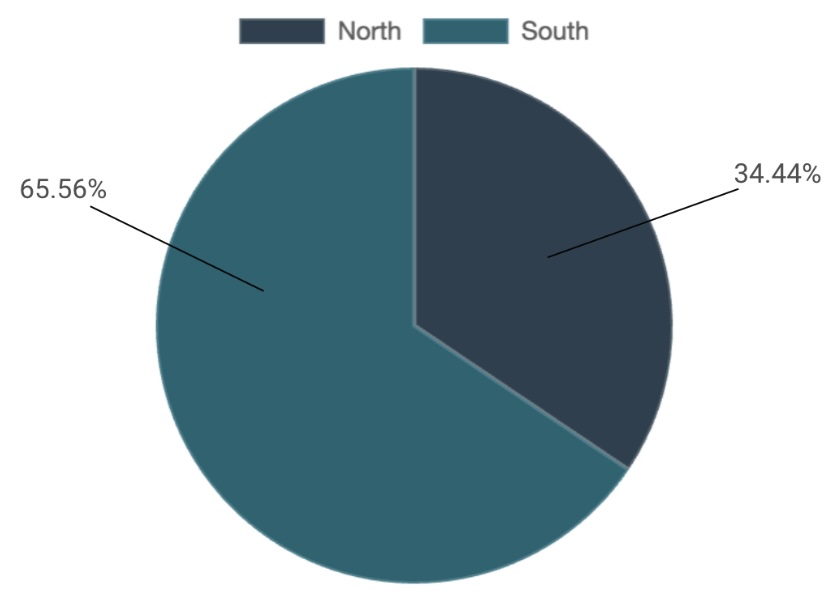
by Western Europe and Others (32.46%) - including 14 submissions for the US and 1 for Canada - Africa (9.09%) and Asia Pacific (7.14%).
Responses by IGF Region
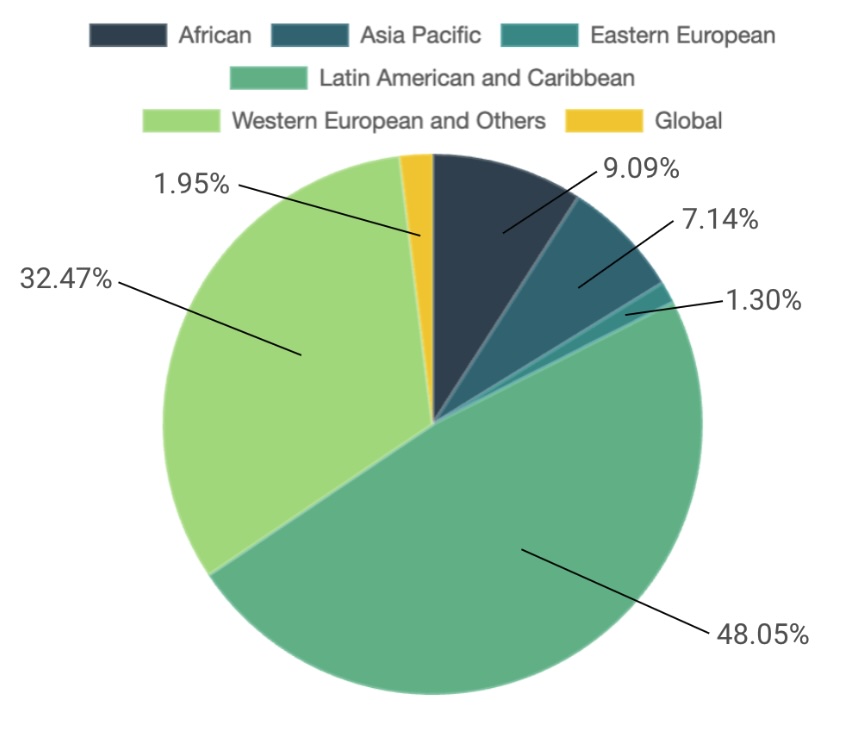
In terms of stakeholder groups, civil society (40,25%), academia (19.48%) and the private sector (17.53%) led the way. The convening stakeholders group –the technical community– came in fourth with 14.28% of the submissions, followed by governments (6.49%) and International Governmental Organisations (1,94%).
Responses by Stakeholder Group
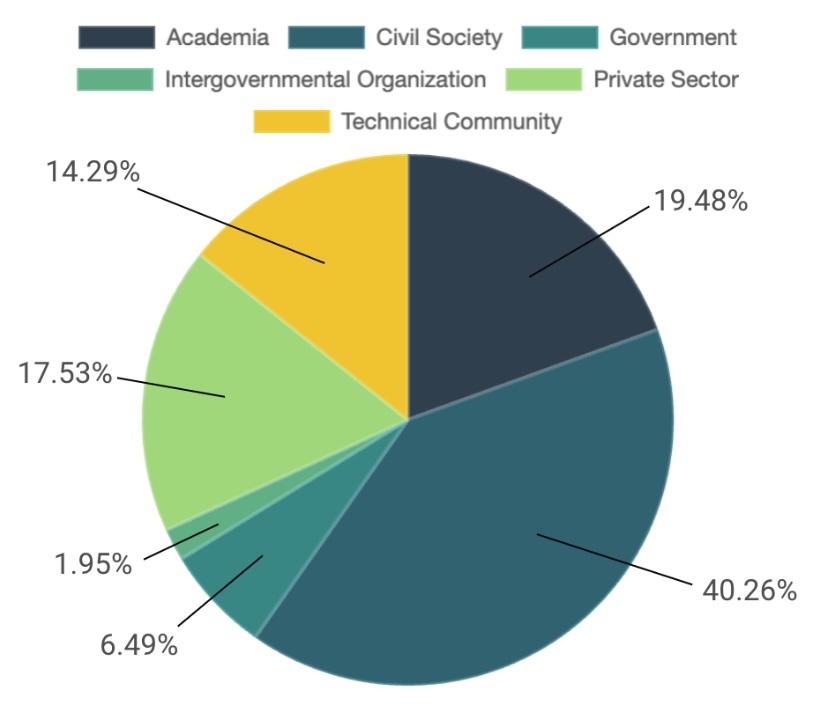
Do people feel the NetMundial Principles still hold up?
Most participants in the consultation (89,61%) believe that the NetMundial Principles are still relevant 10 years on (those who responded “agree” or “strongly agree.”)
The 10 "NETmundial Internet Governance Process Principles" adopted in 2014 remain relevant to address today's digital governance challenges
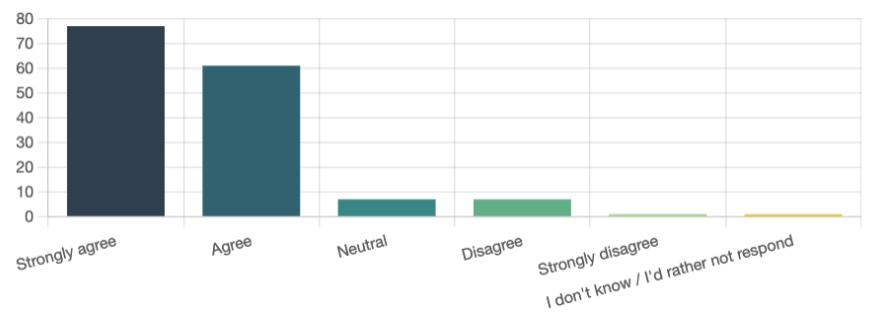
In spite of the principles holding up, the organisers agree there are “persistent difficulties with digital issues.” When asking participants about the source of those perennial and emerging issues, the majority (87.66%) agrees it has to do with “different interests, priorities and value systems of distinct stakeholders.” Others (74.67%) find that “insufficient inclusion of all relevant stakeholders in policy discussions” is the source of today’s challenges, though this view is not unanimously supported – 16,63 % stating they disagree with that diagnosis entirely.
Our persistent difficulties in dealing with digital issues reflect different interests, priorities and value systems of distinct stakeholders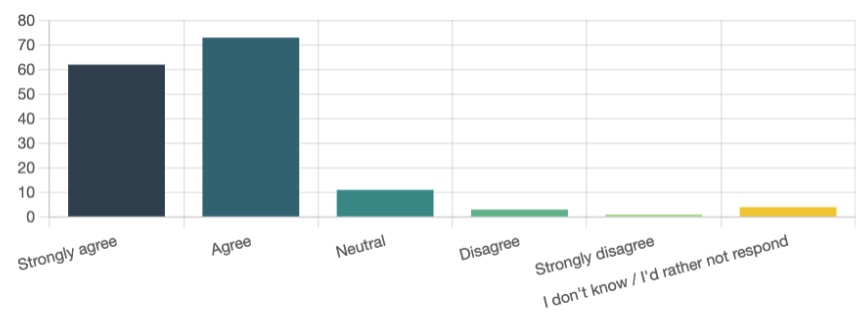
Our persistent difficultes in dealing with digital issues largely stem from insufficient inclusion of all relevant stakeholders in policy discussions
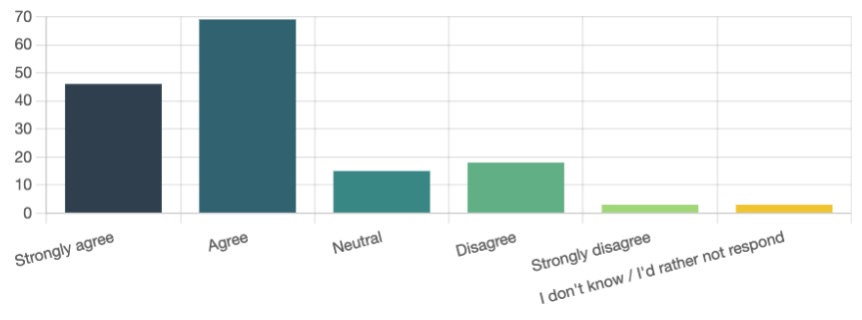
The community acknowledges there is opportunity to further reinforce the original NetMundial principles in ways that support thinking of the future of digital governance. The top three emerging themes in the response are: (i) reinforcing commitment to human rights; (b) addressing the impact of emerging technologies and (iii) rethinking approaches to ensure diverse, meaningful participation.
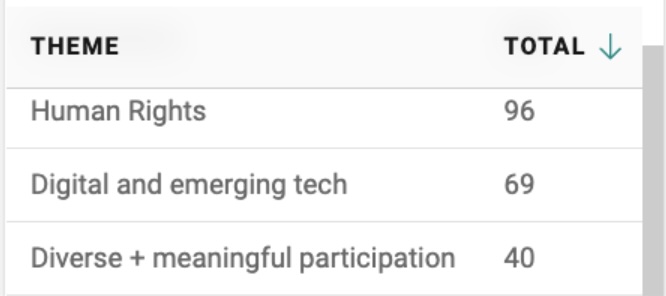
A significant portion of respondents (44,80%) expressed strong concern about the fact that most ongoing governance processes are not applying the multistakeholder principle.
Most digital governance processes are applying the above mentioned "multistakeholder principle"
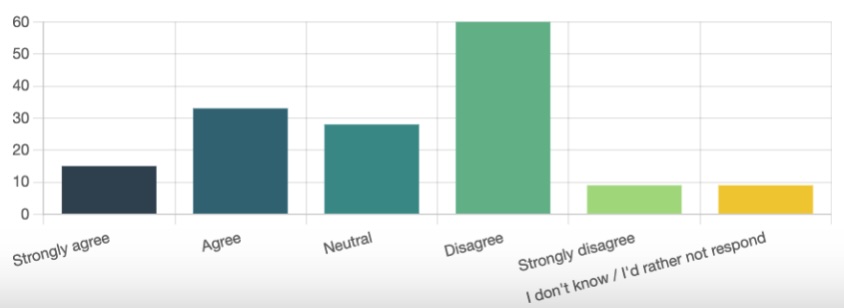
When inquiring about how to enhance cooperation, respondents (88.31%) agreed strongly that “better coordination is needed between processes dealing with overlapping issues.” Examples include aspects directly linked with Internet governance, such the overlap between the WSIS process and the GDC, but they also extend to other areas such as AI governance.
For 77,27% of respondents, these separate, siloed discussions are viewed as risking to create “incompatible,and even conflicting outcomes.”
The support for greater coordination was in line with the open-ended responses to the question of how to improve the implementation of the multi stakeholder principle. The top five themes in the responses were: (i) better coordination, (ii) diverse and meaningful participation, (iii) open and transparent processes, (iv) the involvement of underrepresented groups; and (v) efforts to achieve consensus and enable conflict resolution.
Do you see room for improvements in the implementation of the above mentioned "multistakeholder" principle? If yes, what would you suggest?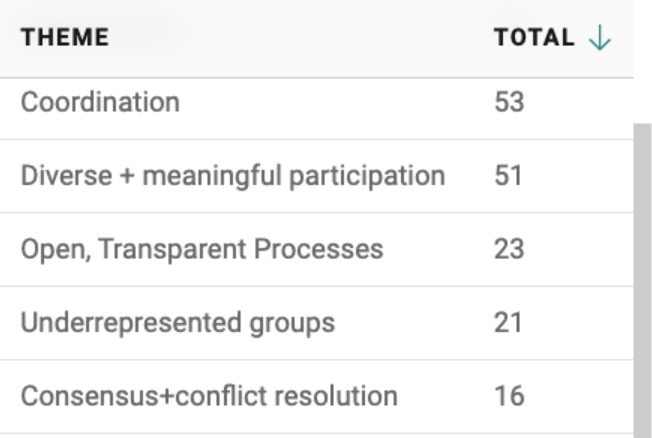
How to beef up Multistakeholder Internet Governance?
The organisers of NetMundial asked for input on how to strengthen the multistakeholder model of digital governance. While many stakeholders openly endorse the model, the consultation sought to get to the heart of how to do better.
The first obvious point of reflection is what the recent flurry of multilateral processes means for the multistakeholder approach. There is a sense that participation opportunities in multilateral processes have somewhat improved for non-governmental stakeholders (46,10%), though this is far from a general consensus with at least 22,07%% of respondents disagreeing.
Since NETmundial 2014, opportunities for non-governmental stakeholders to participate in multistakeholder processes have been improved
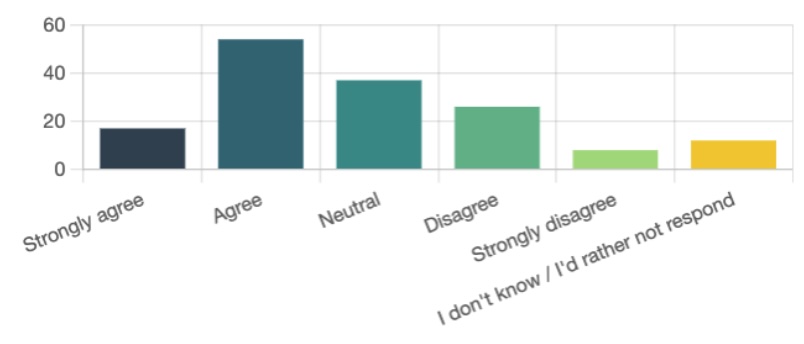
Virtually all consultation participants (88,96% or higher) agreed that three aspects about participation in multilateral processes should be improved. Relevant non-governmental stakeholders should be able to:
- contribute in a meaningful way to multilateral negotiations on digital issues (94,80%)
- attend/observe multilateral negotiations on digital issues (92,20%).
- Understand how their feedback is taken onboard through more transparent consultation mechanisms (88,96%)

So what does true multistakeholderism mean in practice, and what elements should be put in place for a process to be deemed truly multistakeholder? Out of 12 possible guidelines, four came at top as the most important ones. Multistakeholder processes should:
- Be accessible to all stakeholders
- Provide stakeholders information, resources, and skills to enable effective participation.
- Be based on the principle of mutual respect and recognise the value of diverse viewpoints.
- Have a component of informed and deliberative discussion among stakeholders.
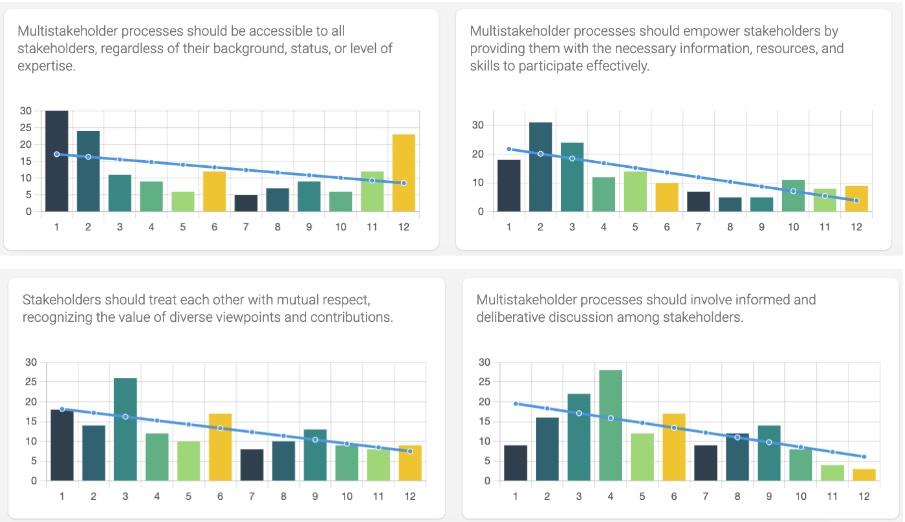
NetMundial, Global Digital Compact and WSIS+20
The consultation took a deep dive into IGF as a space that has –for nearly 20 years now– successfully brought together all stakeholder groups on an equal footing. The responses showcase strong support for what the IGF has accomplished and for what it could achieve. These are in line with the recent findings in the DNSRF’s report on IGF Impact (https://dnsrf.org/blog/net-effects--an-evidence-led-exploration-of-igf-impact/index.html).
Respondents (74.46%) found that the IGF has been an effective space for Internet Governance debates and cooperation. Perhaps most importantly, 86,36% believe the IGF has the capacity to innovate and do multistakeholderism better.
Concerns around the GDC’s proposal to create a Digital Cooperation Forum has awakened a wave of support for the existing IGF. This has also come across the NetMundial consultation, with 78,57% stating their preference for a strengthened IGF as the right space to improve coordination among digital governance processes.
The consultation touched upon key messages that NetMundial should elevate with the GDC and WSIS+20.
The importance of upholding human rights in digital governance and the importance of shared approaches to the governance of emerging technologies comes as shared messages for the GDC and WSIS+20.
For the GDC, respondents strongly emphasised the importance of multistakeholderism, explicitly named diverse stakeholder groups and the need for greater coordination, particularly with the WSIS process and NetMundial itself.
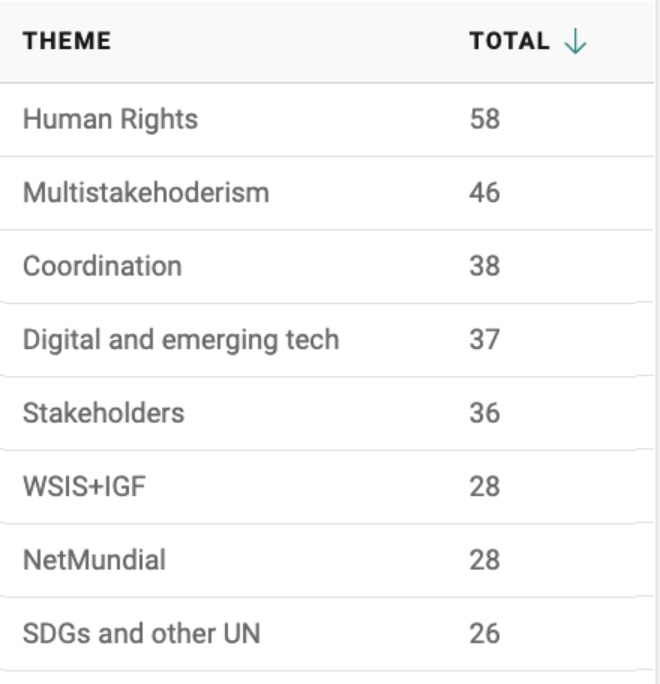
What to expect next week
In sum, there is agreement that the NetMundial Principles of 2014 have survived the test of time. However, the community understands these shared principles have not entirely addressed perennial challenges or prevented emerging ones, ranging from the digital divide to Internet fragmentation trends.
Stakeholders believe more multistakeholder cooperation is required, but acknowledge the issues stem from divergent interests, priorities and value systems across relevant actors.
NetMundial will discuss how to beef up the multistakeholder model. A first essential aspect has to do with how multilateral fora embrace more effectively the participation of non-government actors in all discussions on digital governance. Respondents believe this may be achieved through more open participation mechanisms and transparency on how community feedback is taken on.
NetMundial may do well to elaborate on the value proposition of the multistakeholder model to incentivise multilateral spaces to seek more effective, greater levels of openness.
NetMundial will also take a hard look at how to coordinate with the WSIS+20 review and the GDC.
IGF will certainly be an item of conversation. Consultation responses hint at a likely statement in support of strengthened IGF as a potential venue for coordinating digital governance processes –and a superior alternative to any new GDC-established forum.
Stakeholders participating in NetMundial may do well to commit to strengthening IGF structures regionally and locally. The DNSRF IGF Impact report found National and Regional IGF initiatives (NRIs) connect global internet governance conversations with local realities and encourage multi stakeholder approaches domestically.
The consultations reflect an interest for NetMundial to issue a message to ongoing UN-led GDC process, emphasising the importance of the multistakeholder approach and calling for adequate cooperation with other stakeholder groups, the WSIS process and the very NetMundial community.
NetMundial is an opportunity to demonstrate that multistakeholder processes can be effective, and that the multi-sectoral community is actively working to upgrade its model to respond to the evolving challenges of digital governance.
Note by the author. An earlier version of the article stated that there were no submissions from North America. We thank Mark Datysgeld and Bill Drake for helping us correct this error.

